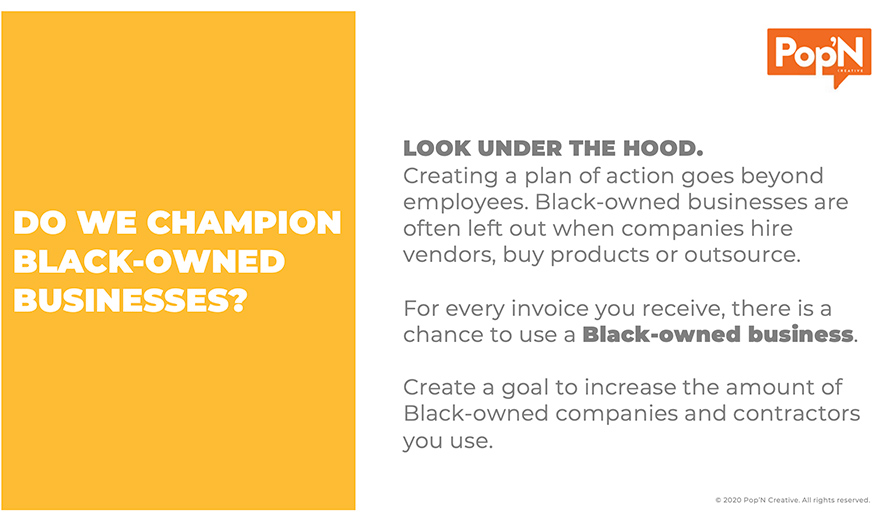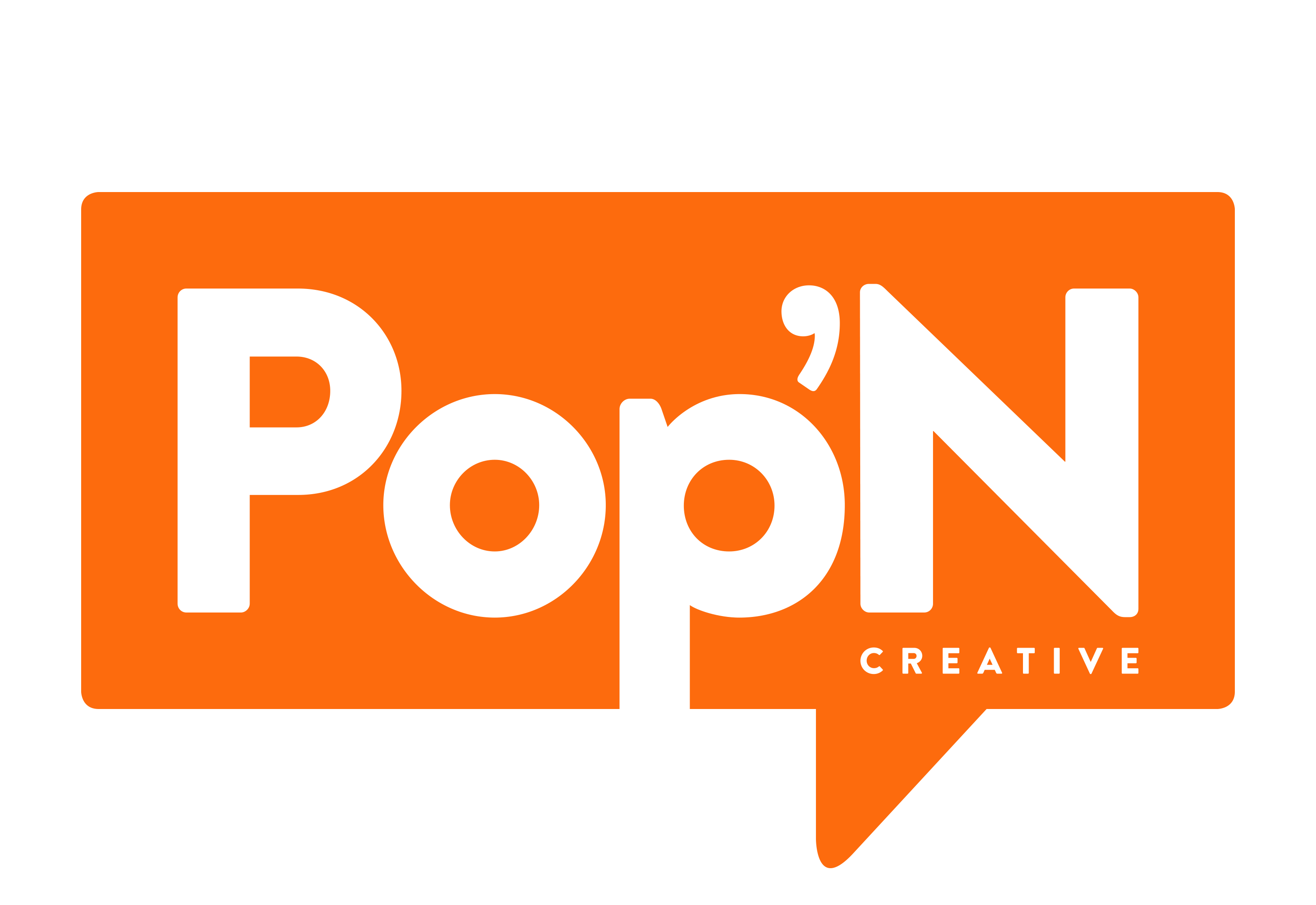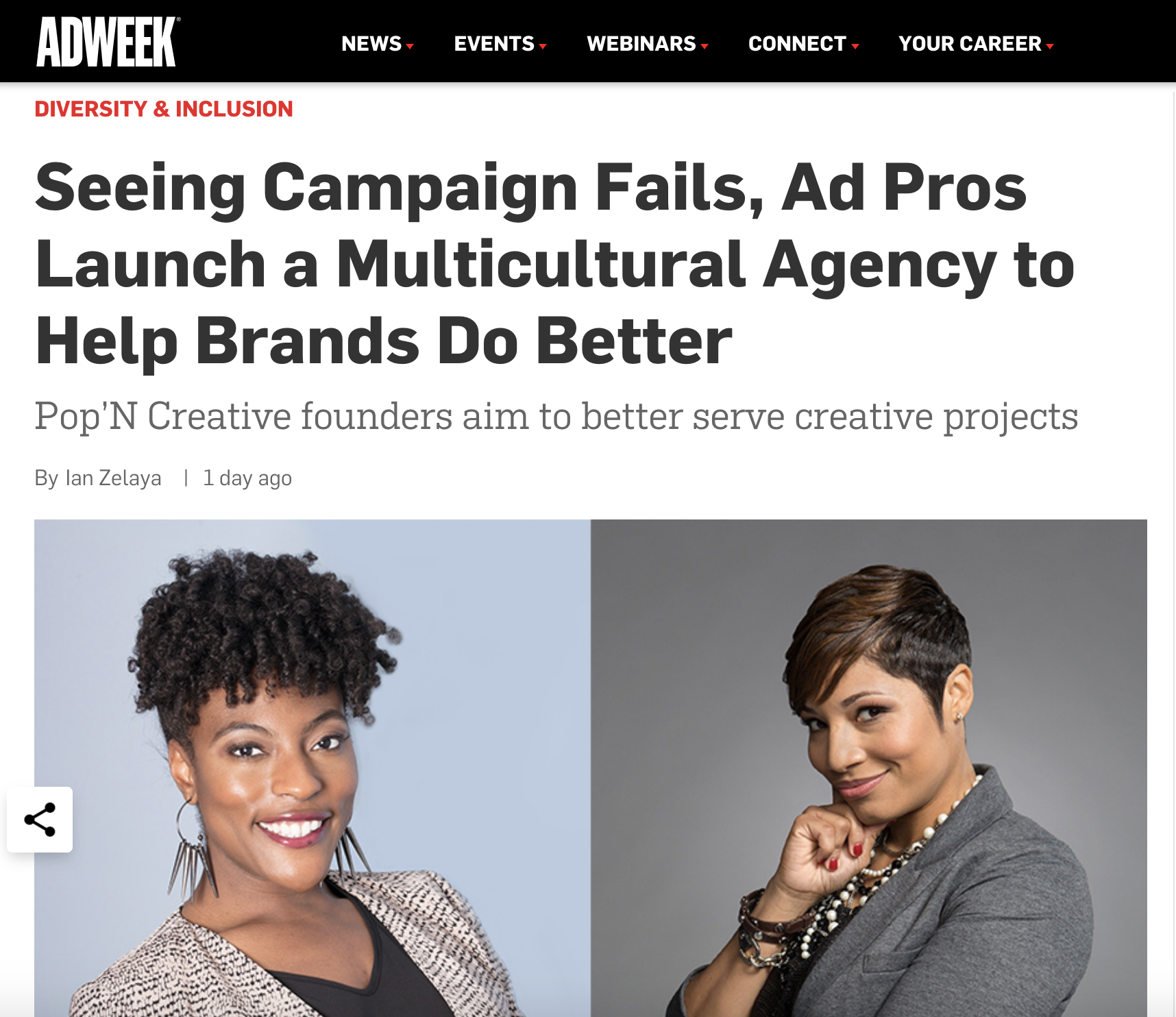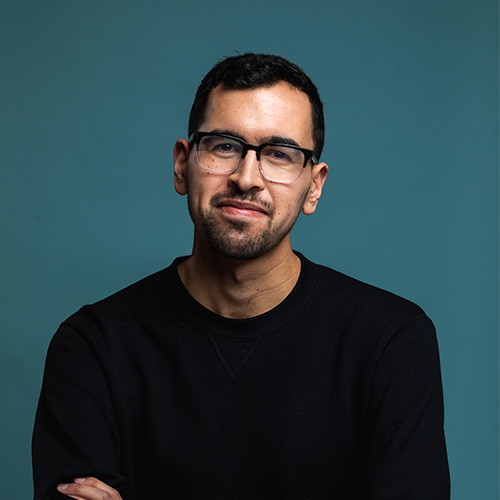Pop’N Creative founders aim to better serve creative projects
Coming from the entertainment marketing industry, Jessica Lane and Lori Hall, the co-founders of Atlanta-based agency Pop’N Creative, have seen some pretty tone-deaf brand campaign pitches.
In the last decade, the two have worked in-house at Turner, overseeing marketing campaigns for TNT and TBS. Before teaming up for their own agency, they led campaigns for TV One, a cable network that primarily targets Black audiences.
Working for brands, the two recalled insensitive agency pitches that have ranged from key art for a talk show hosted by a Mexican American personality with mariachi bands, sombreros and garden hedges—all reinforcing stereotypical depictions of Mexican Americans—and key art for a candy brand centered on nooses, disregarding the history of nooses and Black people in America.
“Sometimes we forget how many horror stories we’ve seen with pitches for multicultural audiences that just go so left,†Lane said.
Hall added that offensive campaigns are often due to a lack of Black and POC employees in senior leadership or in positions where they can speak up without fearing retribution.
“It’s really critical to make sure you have the right people in the room,†Hall said. “And if you don’t, it’s critical to hire an agency that has that expertise.â€
Hall and Lane launched Pop’N Creative in early 2020 to help brands improve their creativity, while avoiding offending multicultural audiences in their digital, social and experiential campaigns. Lane is head of digital content and marketing, while Hall is head of creative.
Pop’N Creative’s buzziest project so far, for TV network Freeform, was a full-circle moment for Hall and Lane, as the campaign’s primary goal was to upend stereotypes.
The agency partnered with the network for its social series for Black History Month titled “Black People Like…†in which a group of Black influencers and artists explore what “Blackness†means to them and discuss topics stereotypically considered “non-Black.†The roundtable discussions focused on topics including rock music, veganism, camping and nerd culture. The campaign drew 200,000 views across Freeform’s social channels.
“It was a really creative take on how to support Black History Month initiatives, something that was forward, different and interesting,†Hall said. “Freeform didn’t want to do the same thing that a lot of companies do, like cite facts or give a [history lesson].â€
As the industry conversation continues to revolve around inaction on improving diversity internally and a failure to hire Black-owned shops for high-profile campaigns, Lane said she hopes to see more brands and agencies turn awareness into action.
“My hope is brand marketers see their messaging is so dependent upon getting it right and talking to an audience right now that is feeling hurt, confused and neglected,†Lane said. “They need to choose someone who knows the story and can craft messaging around it that works. I hope this is charging people to go outside of their normal processes to make these things happen.â€
When larger agencies began posting social media messages of solidarity and commitments to improve their D&I initiatives in response to recent Black Lives Matter protests, Pop’N Creative created a free guide for marketers on how they should respond and take action.
The Action Guide to Dismantling Racism shows examples of which brands are getting it right—and wrong—in addressing racial injustice, and addresses what companies need to immediately begin doing to improve their diversity.

“In five years, there should be proof that Black Lives Matter. That shouldn’t include just profiting from Black people as customers,†Hall said. “It includes putting Black people in leadership positions and promoting them within the ranks of your own company.â€
Lane said she also hopes this moment inspires more Black people and POC to get into experiential. Pop’N Creative was developing its first large-scale client activation for the annual Essence Festival before the event was canceled due to Covid-19; Lane and Hall said they wanted to partner with Black-owned vendors in New Orleans, but struggled to find partners that didn’t have predominantly white teams.
“It’s hard, especially in the fabrication space,†Lane said. “We struggled working with the fabrication vendor we chose on how to translate the vibe and tone of what we were looking for. They just didn’t get it.â€
Hall said moving forward, agencies and vendors need to start asking themselves: “What’s my plan to make sure I have diversity of thought, diversity of background and diversity of experience?â€
Adweek will continue to spotlight Black owners of agencies to share their experiences and ways they want to see the industry take action for change.


